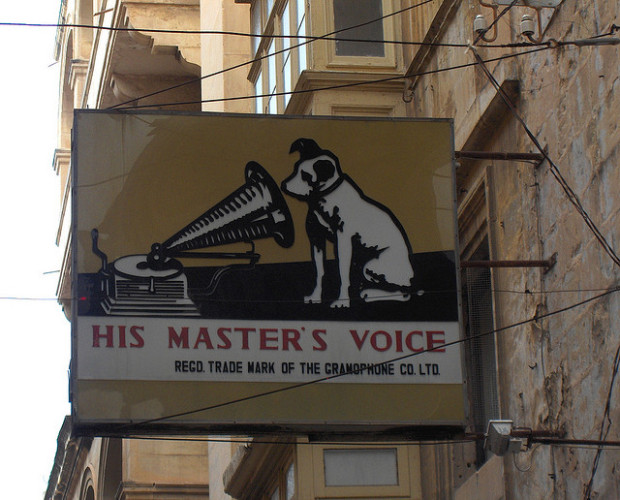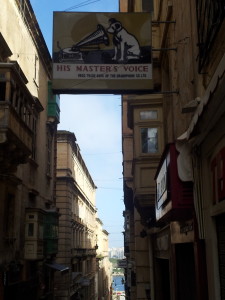Language.
Useful multi-tool to the acute-minded savant. Cruel cattle grid to the dim-witted nimrod nincompoop who still insists on pointing at the sky, slack-jawed in utter amazement each time an aeroplane flies by.
Avant-garde artsy-fart Laurie Anderson reasonably proclaimed in her abstractly oblique, yet directly obvious installation of pretension “Language is a Virus” that, “Language. It’s a virus!” She incessantly repeats the refrain over and over and over and… yawn. Don’t listen to it. It’s excruciating.
Actually, Laurie was paraphrasing one of her heroes, quasi-pedophile and occasional author William S. Burroughs. He theorised quite successfully in his experimentally brilliant cut-up novel The Ticket That Exploded that “language is” indeed “a virus”.
By this, Burroughs is suggesting that language, in its very existence, exerts complete control over the human mind. Language is infectious. Language is limiting. Most humans are confined within the razor-wired cyclone fences of language. We can all see through the fence, but most of us cannot climb over.
Unless you are Maltese.
The Maltese people are generally quite little in stature (cute really) and would normally have no physical hope of climbing any cyclone fence, figurative or not. The language however, packs an almighty punch.
Steeped in Arabic, Maltese is the only language still in Europe that utilises Aramaic in its vocabulary. The first language. This is due to the tiny country’s close proximity to the Middle East and Northern Africa. While we are talking proximity, as Malta lies smack bang in the middle of that cradle of civilisation we call the Mediterranean (quite close to Sicily), it also uses a great deal of Latin in its lexicon. The second language.
Over the centuries, most countries in the region seem to have each taken a turn at ruling or, at the very least, invading Malta. As a result, it’s the varying and ever-changing cultural influences that have led to the evolution of this utilitarian grammatical mish-mash of the prototype languages. The term for this is Siculo-Arabic (the Arabic dialect that developed in Sicily).
Throw in a smattering of modern day French and German loanwords, Italian concerns and pleasantries and a shitload of English and you have the formula for what is unmistakably the most remarkable dialect on the planet. It is called Malti. Forget Esperanto, Malti is the true universal language.
It’s a unique blend Malti. Quirky and esoteric. Here is an example:
telliefa perenni: this is Malti for “perennial loser”.
bridesmaid: this is Malti for… “bridesmaid”.
Bridesmaid
Bridesmaids (or in Malti, bridesmaids) have all played a part in our lives at one stage or another. Drunk, single wannabe Casanovas have – as warped tradition or superficial rite of passage dictates – both figuratively and literally tripped over themselves trying to “play” the bridesmaid (not me though, I’m far too classy). As either athletes or sports fans we have all been forced to play the bridesmaid as we endure the slow hacksaw through the chest plate, exposing the heart to the blunt and stabby Phillips head screwdriver that is the opposing team kicking your own team’s arse. Again. (Just ask any 40+ Hawthorn fan about 84/85, watch how annoyed they get, it’s hilarious). Then of course, there’s playing the bridesmaid in the traditional sense. I’m sure most women absolutely cherish their time as bridesmaid on their sister’s or best friend’s big day, just not eight bloody times without ever getting their name engraved on the trophy themselves. That’s Malta; the perennial bridesmaid.
And not your drop dead gorgeous, catching the bouquet, next in line for the big stage type bridesmaid either. No, Malta is more your last straw, second cousin with the train track braces, faulty personality and canary yellow dress with the puffy arms type bridesmaid. Well, at least from a sporting sense.
Telliefa Perenni
Now don’t get me wrong, I love Malta and her beautiful people. My family descend from there and as I write this scintillating piece, I am getting lockjaw from eating yet another day-old dry pastizzi while overlooking the luzzu (Maltese fishing boat) littered blue wonder that is Spinola Bay, the heart of St. Julians, Malta’s most trendoid area. As I look around, yet another fat, pale, topless, drunk Englishman passes me by. I ask him if he can explain to me his experiences of being a perpetual bridesmaid in the sporting sense given that there are so many examples of losing in his country’s sporting history. He grins, tells me to “Fuck right off” and promptly vanishes into a staggering puff of beer-sodden mediocrity. Fair enough. I guess some people can’t handle the truth. All that, of course, is beside the point. I take another swig of Cisk to calm the nerves.
Malta, to put my own Aussie bogan twist on it, wins at bugger all. Sweet F.A. Twenty Olympic Games appearances and the best that could be mustered so far is a sixth place in trap shooting. Glamorous, no? Does the household name of Mr. William Chetcuti mean anything to you? I thought it would. But in case you haven’t heard of him, he is Malta’s most successful Olympic athlete. The native quail of Malta must be the most relaxed game bird on the planet. They really don’t have too much to worry about.
Or, what about the Sliema Wanderers? My team. Malta’s most successful football club. The country’s domestic title kings. Twenty-six in total. Most seasons they take an immense pleasure at beating up on some poor local village team like the Zebbug Rangers, a team made up of rabbit hunters and shonky tour operators (don’t quote me on that). On the European scale the Sliema Wanderers are just horrible, their best result coming in the 1971-72 European Cup (now Champions League) where the majority of the team suffered from altitude sickness caused by reaching the dizzying heights of the second qualifying round.
Malta itself is currently ranked 145 on FIFA’s dubious world ranking system, wedged between those football giants Turkmenistan and Lebanon. The ranking seems a tad generous to me, a recent loss to the almighty Azerbaijan suggests this.
This is not a Malta bashing session
To be fair, the tiny nation’s population is bloody small (approx. 450,000) and half of that seems to be drunk Englishmen. Small population + drunk Englishmen = perhaps not the optimum formula required for team sport, or, team sport’s equivalent of mixing magnesium strips with Conte’s crystals; there’s a spark, a glimmering effort of white light hope followed by a peculiar stench and a spent pile of discard that someone has to clean up.
It’s nobody’s fault.
It’s with little wonder then that the despondent Maltese people turn their attentions away from sport at this time of year and onto a different type of competition, the Eurovision Song Contest. That’s right kids, it’s nearly that time of year again where that ostentatious bastion of middle-class Euro-tack that is the Eurovision Song Contest takes pride of place on the television sets of inner-city-dwelling semi-trendy hipsters, as they communally gather in their ever-so-minimalist studio motif, cheering ironically and getting their “geek on”. Well, in Australia at least. Crazy kids.
But in Malta this is serious business. And so it should be. Malta is a meaty contender at the Eurovision Song Contest, (I wont specify any particular contestant, the music is usually bloody awful truth be told) some may even call Malta stalwarts. Guaranteed, come mid-May when the competition begins, Malta will be right there in the beefy part of the soup. But can WE win? How the hell do I know?
What I do know is that no matter how talented – or strongly favoured in betting – a contestant Malta puts up in the annual gaud-fest, ultimate success, although tantalisingly close, always seems to be agonisingly out of reach. Yes, bridesmaids again, though this time we’re the pretty ones.
Case in point: Malta has appeared at 27 Eurovision Song Contests and has made the finals on 23 occasions. Solid record. Malta has finished second on two occasions; 2002 and 2005.
Ghana (Not The Country That Asamoah Gyan Represents)
Now this may only interest the three regulars (Mr. Muscat, Mrs. Camilleri and Robbie, the unemployed half-Maltese/half Irish who swears that Sunshine George Cross would win the A-League given half a chance) who frequent the Maltese deli in Sunshine for their daily Kinnie (Suffolk Road, check it out), but, did you know that Malta has a proud, righteous and culturally significant place in the history of folk music? It’s called ghana and it can be both a joyous and/or fiercely political medium, generally without bogging itself down in the negative cultural aspects that a lot of the more recognisable forms of folk music tend to do.
Like most folk music, ghana’s origins can be traced back to the peasant farmers of the late 19th century, who, just like their American and fellow European contemporaries, were simply just searching for a way to pass the time while ploughing the earth or tending the olive trees. These were often simple songs with improvised lyrics and filled with mostly regional slang about daily observations, frustrations and of course, the opposite sex. Farmers would return to their peasant villages after a day’s work, gather in the town centre and show off their new lyrical masterpieces to each other. Come the next working day the previous day’s song would be forgotten and a new improvised hit would take its place. As the popularity of ghana grew in the regions, it was sung by everyone from the farmer, the innkeeper to women singing on roof tops, eateries and communal wash houses.
“One could listen to ghana songs, accompanied by a guitar or accordion, sung by men and women on sea coasts and during popular feasts such as Lapsi. Youths used to sing ghana love songs in the open country, or the streets, or in houses during work time.” — Karm Psaila, Malta’s national poet.
By the late 1920s, ghana had grown up and was causing quite the societal stir. It now had an air of sophistication; ideology in the mind, ambition in the heart. Language was now ghana’s main weapon. The songs evoked the roots of Maltese poetry and literature, and, as a result, overseas recognition came in the form of crowded passenger ships hurtling toward Valletta from the Tunisian horizon. Soon, the streets of Valletta (Malta’s capital) would be swarming with hedonistic Middle Eastern musicians hungry for new sounds to take back home and gorge upon. Music establishments in Valletta were now thriving businesses while fierce promoters of the local scene were championing the music as an “unfolding phenomenon which would entertain the people for decades to come”. Even England got the word: this is great music, come and check it out.
So, back to that useful multi-tool. Language.
Doctor Brombos is a now defunct Maltese satirical newspaper that my grandfather introduced me to during my curious teenaged years. He marketed it to me as a Maltese version of People magazine. “Beautiful,” I thought, “Topless pictures of Samantha Fox.” I was wrong. From the small smattering of Doctor Brombos clippings that he owned, I gathered it to be more like the World Weekly News but with an astute use of language and without the insane paranoia. There were cleverly worded jokes, humorous takes on current day politicians, cartoons and candidly embarrassing photos of (fully dressed) local identities. Since those idiotic teenage years I have now learnt that Doctor Brombos – prominent in pre-war Maltese culture – played a huge part in the popularisation of the ghana movement and was also the unwitting saviour of one of the world’s most iconic (now defunct) record labels, His Master’s Voice.
A brief history: English company His Master’s Voice (also a gramophone company – y’know, the one with the dog) very nearly went bankrupt during the Great Depression. History now shows the iconic company survived by amalgamating with other struggling record labels to form the recording giant Electrical and Musical Industries (EMI). This was in 1931. HMV was founded in 1899 as a gramophone company and by the end of World War I had turned its hand to recording. The business flourished through that time but by the end of the 1920s it had run out of money and grown irrelevant due to a rapidly increasing competitive market. Meanwhile, other large recording companies were fixing to merge to form one giant label, without HMV. HMV was drowning.
Enter Anthony D’Amato, a distributor for HMV who had first heard about the ghana movement in the pages of Doctor Brombos. He checked out some acts in Valletta and was blown away by the unique music, witty lyrics and driving passion. Motivated by the fear of unemployment, he convinced his bosses from England to come to Valletta to dig the sounds of now. So, in 1929, a party of fat, drunk Englishmen sailed to Malta to dig on ghana. Now, I’m not entirely sure what the origin of the saying “killing two birds with one stone” is, maybe it originates here, but, what I am sure of is that the global discovery of ghana made by those Englishmen not only popularised the movement, but it’s what single-handedly saved HMV (and possibly the music industry as we know it, stretch?). That’s right, it happened in Malta.
Consequently, the HMV bosses in conjunction with a local recording label owner, Dr. Fortunato Habib, organised a recording trip for Maltese and Middle Eastern ghana performers to Tunis, the capital of Tunisia, where in 1929 and half of 1930 they recorded a monstrously prolific collection of ghana acetates. These were then sent back to England for distribution throughout Europe and even to the United States and Canada. To put it in business terms, they sold a shitload. For that brief but important period, ghana was HMV’s number one export, actually bringing in more money than gramophone sales. Ghana was big, HMV was back and once again relevant and, during the 1931 morph into EMI, they were the biggest players with the biggest say. They were saved. In Malta. By the Maltese. Damn fucking straight.
Who’s the bridesmaid now?
Oh, and here’s an old Maltese joke my dear, departed grandfather told me…
How do you make a Maltese cross? Go to bed with his wife.
The finals of the Eurovision Song Contest 2015 begin on May 19th. Check ironic hipsters’ television sets for local times.
Ghanafest is a “three day manifestation” of Maltese folk music. Both contemporary and traditional
ghana are honoured and celebrated with live performances, improvisations and workshops. Ghanafest 2015 will be held in Floriana, Malta from June 12-14. Here are some local legends for you to check out; Fredu Abela, Guzeppi Camilleri, Fredu Spiteri, Salvu Darmanin, Pawlu De Gabriele, there are many more.
The European Champions League semi-finals are on soon too. Obviously, no Maltese teams are involved.

















